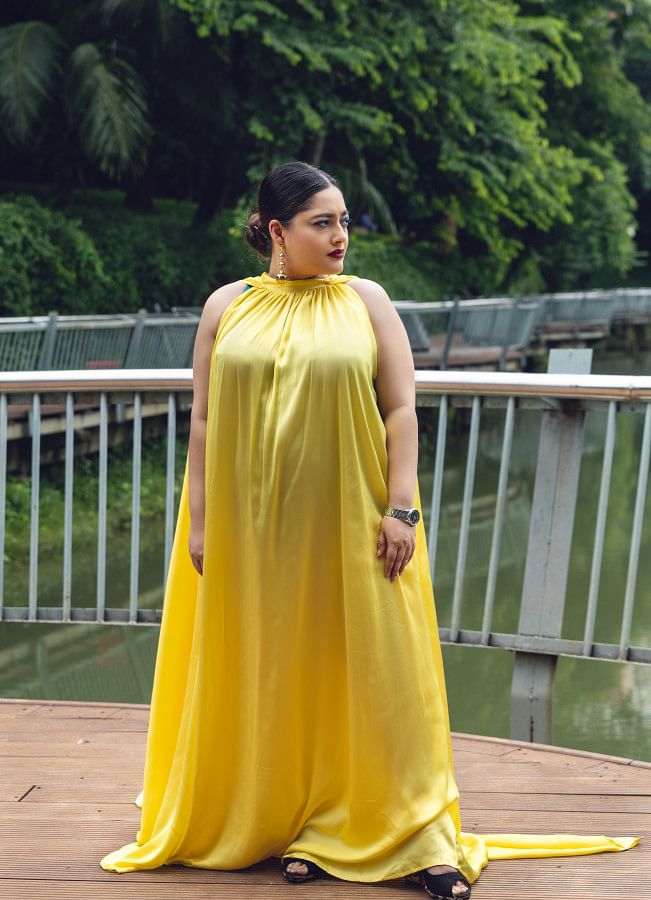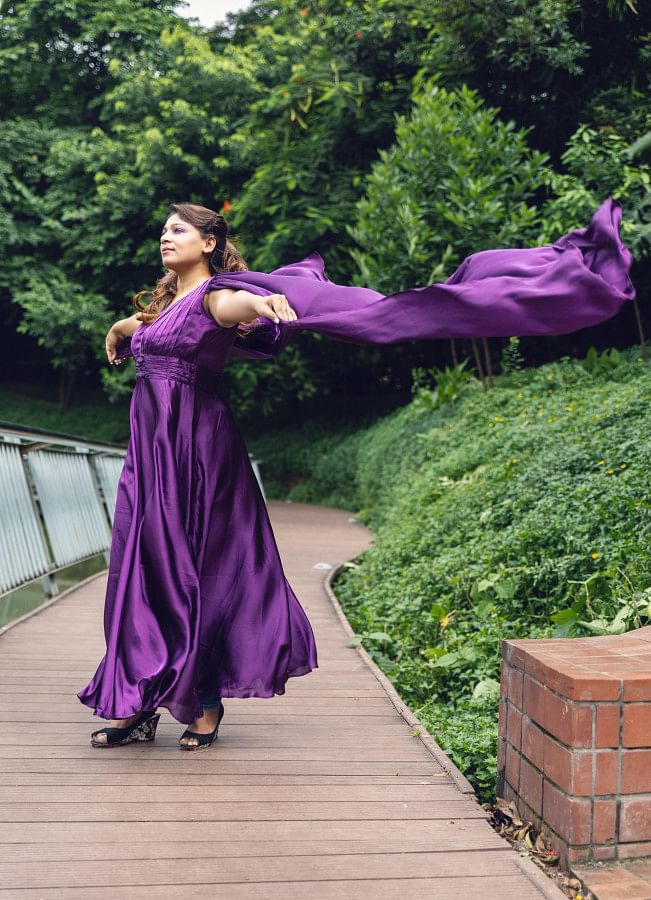We have long been obsessed with the idea of perfection. But what does the "perfect" really look like? Is it a slender figure, six-pack abs, or a fair complexion? Unrealistic beauty standards have conditioned us to prioritise a narrow and often unattainable definition of beauty.
However, it's time to change our perception. Challenging these rigid standards, the body positivity movement emerged, which advocates for the appreciation of all body types — irrespective of size, shape, or appearance.
The essence of body positivity
The body positivity movement has its roots in the fat acceptance movement of the 1960s, which sought to combat discrimination against overweight individuals. However, it has evolved into something much broader over the years.
At its core, body positivity is about finding peace within ourselves. It's a commitment to appreciate our bodies as they are. Samia Tunazin, a development worker, aptly captures this sentiment: "For me, body positivity means accepting how we are. I believe that if you don't have any health issues, you need not be bothered about your shape."
She adds, "We need to be aware of our well-being instead of getting concerned over people's remarks or the latest trends." Samia's perspective highlights the essence of body positivity: prioritising health and well-being over societal expectations.
A fundamental aspect of body positivity is the concept that health is not determined solely by body size or weight. This principle advocates for a holistic approach to health, focusing on physical, mental, and emotional well-being rather than a specific body type.

"Body positivity starts with awareness"
Body positivity is closely linked to mindfulness. Eliza Chowdhury, a certified yoga instructor, highlights, "Body positivity, I believe, essentially comes from awareness. It is about being positive about the way our body naturally is."
Mindfulness helps individuals appreciate their bodies and recognise their intrinsic value beyond appearance. It promotes a healthier self-image and encourages self-compassion. On developing a positive self-image, Eliza points out, "I have seen women who are on the heavier side perform yoga poses with incredible ease and flexibility, often surpassing what some slender women can do. It's a reminder that physical ability and grace are not confined to a specific body type!"
It is about how we treat our bodies. Thanks to social media, we are exposed to picture-perfect lives of people and as a result, is easy to get hypnotised by all this glitz and glamour.
Eliza asks, "It's easy to feel envious of someone you perceive as beautiful, but what if that person is struggling with an illness and isn't truly healthy? Would we still feel the same way if we knew their reality?"
Though the grass may appear greener on the other side, in reality, it might be bleaker than you realise. It is about time we start questioning and dismantling the unrealistic and often harmful beauty ideals perpetuated by media and advertising.
Why all shapes and sizes are good
Human bodies are wonderfully diverse. Our differences in size and shape are natural and beautiful. This diversity should be celebrated, not stigmatised.
"My friends used to tease me about my breast size, which is in every sense wrong," says Samia. Many of us, including Samia, have faced crude, insensitive remarks like, "Why did you put on weight?" or "Why did you lose weight?" These questions are all too common and often directed at us.
Such questions are undoubtedly hurtful. No one deserves to be taunted about their shape because all shapes and sizes are good.
Sumaiya Sayat Rubama, a strong advocate for self-love, shares her thoughts on the emotional complexities of body positivity: "Body positivity for me means being able to hug myself on days I catch my reflection in the mirror."
"It's about accepting that maybe today, the outfit doesn't look as good as I thought, and the love handles seem more pronounced. But even then, I'll still hug myself because this body has been incredible at staying strong, even when my mind has played tricks on me."
Many people struggle with feelings of inadequacy, believing that they don't measure up to the standards set by the media, peers, or even their unrealistic expectations. This negative self-image can lead to a range of emotional and psychological issues, including low self-esteem, depression, anxiety, and disordered eating.
However, self-love stands as a powerful antidote to these challenges, offering a path to healing and acceptance. Understanding why self-love is needed and how it can help overcome a negative self-image is essential for personal growth and well-being.

The need for inclusive fashion
The fashion industry has long been dominated by narrow beauty standards that cater primarily to a limited range of body types. This lack of diversity not only restricts choices for plus-size individuals but also perpetuates harmful stereotypes about body image and self-worth.
Zarin Farhana Rakhee, founder of Zaria – a fashion brand for plus-size women – explains her motivation: "The inspiration to start a business catering to plus-size women in the fashion industry came from a combination of personal experiences, social awareness, and a passion for inclusivity. I noticed a significant gap in the industry concerning the representation and options for plus-size women."
Rakhee's vision goes beyond business – it's about challenging stereotypes and creating a more inclusive fashion landscape. "The vision for the business was clear—to redefine beauty standards and empower plus-size women to embrace their bodies confidently," she says.
By offering stylish, well-fitting clothing for plus-size individuals, designers like Rakhee help to normalise diverse body types and promote body positivity. Fashion is a powerful form of self-expression, and everyone deserves to feel confident and beautiful in what they wear.
To conclude, body positivity is more than just a hashtag or a fleeting trend. It's a movement that calls for radical self-love and acceptance. It is about time we embrace diversity fully and take intentional steps towards creating a world where every type of body is celebrated and respected.
Models: Arsila, Natasha
Wardrobe: Starlet Style Studio
Starlet Style Studio is an advocate for body positivity and circularity in fashion









Comments